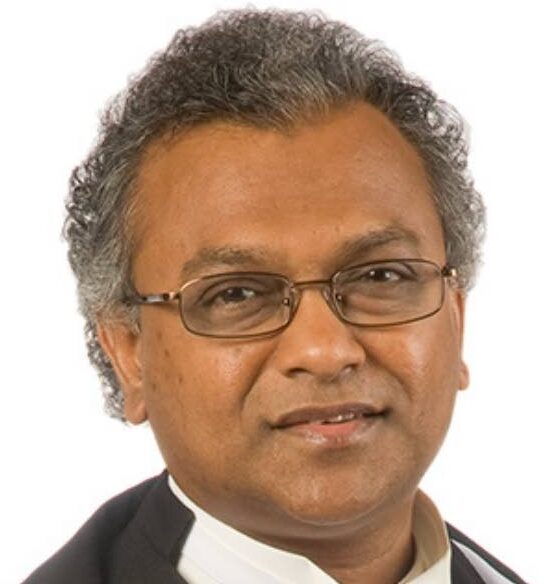Judge: 2017 denied entry of 3 Venezuelan women to Trinidad and Tobago illegal

A HIGH COURT judge has ruled that the rejection of three Venezuelan women from entering Trinidad and Tobago because they were “likely to become a charge on public funds” in 2017 was illegal.
The orders were made on May 14, by Justice Robin Mohammed in lawsuit filed by the three women and a Trinidadian man, Gregory Bodie. The women do not speak English but had travelled to TT before without difficulty.
The four entered TT on April 24, 2017, but were detained at the Piarco International Airport and questioned. The women were denied entry and served with rejection orders. The women were removed from Trinidad around 7 am on April 27, 2017, despite a judge staying the rejection orders.
Bodie, a Trinidadian with citizenship in the United States, where he said he was usually resident, and Venezuela, having served in the South American country’s army, was engaged to one of the women.
Their marriage was formalised in Venezuela in April 2017. One of the other women was his step-daughter. They came to Trinidad for a “better wedding.”
In its defence, the State argued the women provided conflicting information to immigration officers which raised reasonable suspicion about the legitimacy of the purpose of their visit.
In his ruling, the judge said, “It is indubitable that the Immigration Division plays a vital role in safeguarding the interests and national security of TT.
“As the gatekeepers of our nation’s borders they are endowed with certain important powers in order to effectively execute their functions.”
However, he said, “Fairness requires an immigration officer to conduct a proper assessment of an individual traveller’s circumstances and their resources.”
He said there was no evidence from the State on what constituted sufficient funds.
“It thus stands to reason that in the absence of any evidence of a standard policy or criteria by which the defendant’s servants determined when travellers fell into the prohibited class, the court was constrained to find that the decision to refuse entry to the claimants on this ground was unreasonable.”
Mohammed said clear guidance and training was necessary to ensure immigration officers exercised their duties and discretion effectively when examining travellers to TT.
He also held the immigration division did not engage the special inquiry provision to allow the three to argue their case.
“In this case, the immigration officers involved at all levels failed to initiate stage two of the process as mandated by the legislation and in doing so, illegally, irregularly and improperly exercised their discretion in issuing rejection orders to the claimants.”
Mohammed added, “There is no issue that immigration officers have the power to issue rejection orders or to detain a person pending special inquiry.
“However, the law demands that there should be a transparent statement or policy of the circumstances in which an immigration officer will exercise the discretion.
“There was no evidence from the defendant that such a transparent statement or policy existed at the time or even at present.
“If one existed and was published, this would give persons seeking entry and falling into that category, a fair idea of what to expect upon entry and whether more needs to be satisfied by them.”
He said natural justice demanded fairness in the decision-making process and decisions of public authorities and the power to reject entry was not one that should be used without due regard for the person being rejected.
Mohammed also rejected an argument by the State that there was no obligation to provide interpreters for the women who did not speak English.
“It is not a law that all persons entering TT must speak the English Language. It is the duty of the State, that is, the Immigration Department, to ensure that all persons entering the country meet the requirements for entry.
“Implicit in that duty is the requirement to ensure that the Immigration Department is staffed with persons who speak different languages or at least have access to interpreters, so as to allow fair and simple processing of entrants.
“How can Immigration Officers conduct their duties effectively if they cannot converse with the persons they are meant to interview? And how can tourism thrive if we are unable to converse with visitors who visit our country from different parts of the world speaking different languages?”
He said in this case, “every immigration officer, at all levels involved, failed” in their duties.
“Fairness, transparency and accountability ought to be at the heart of every decision made by a public authority.
“The Immigration Division is vested with such critical functions in safeguarding our nation’s borders and thus in the exercise of these functions the principles of natural justice cannot be eschewed if the integrity of their office is to be maintained.
“The promulgation of proper standards and policies for entry into TT and understanding of the requirements of the Immigration Act appear to be lacking and must be rectified by the division with alacrity to avert similar circumstances in the future.”
He declined to order damages for Bodie and the women although he did grant the declarations they asked for and quashed the rejection orders.
Bodie and the women were represented by Devon Williams and David Francis while Ebo Jones and Ryan Grant appeared for the Chief Immigration Officer.

Comments
"Judge: 2017 denied entry of 3 Venezuelan women to Trinidad and Tobago illegal"